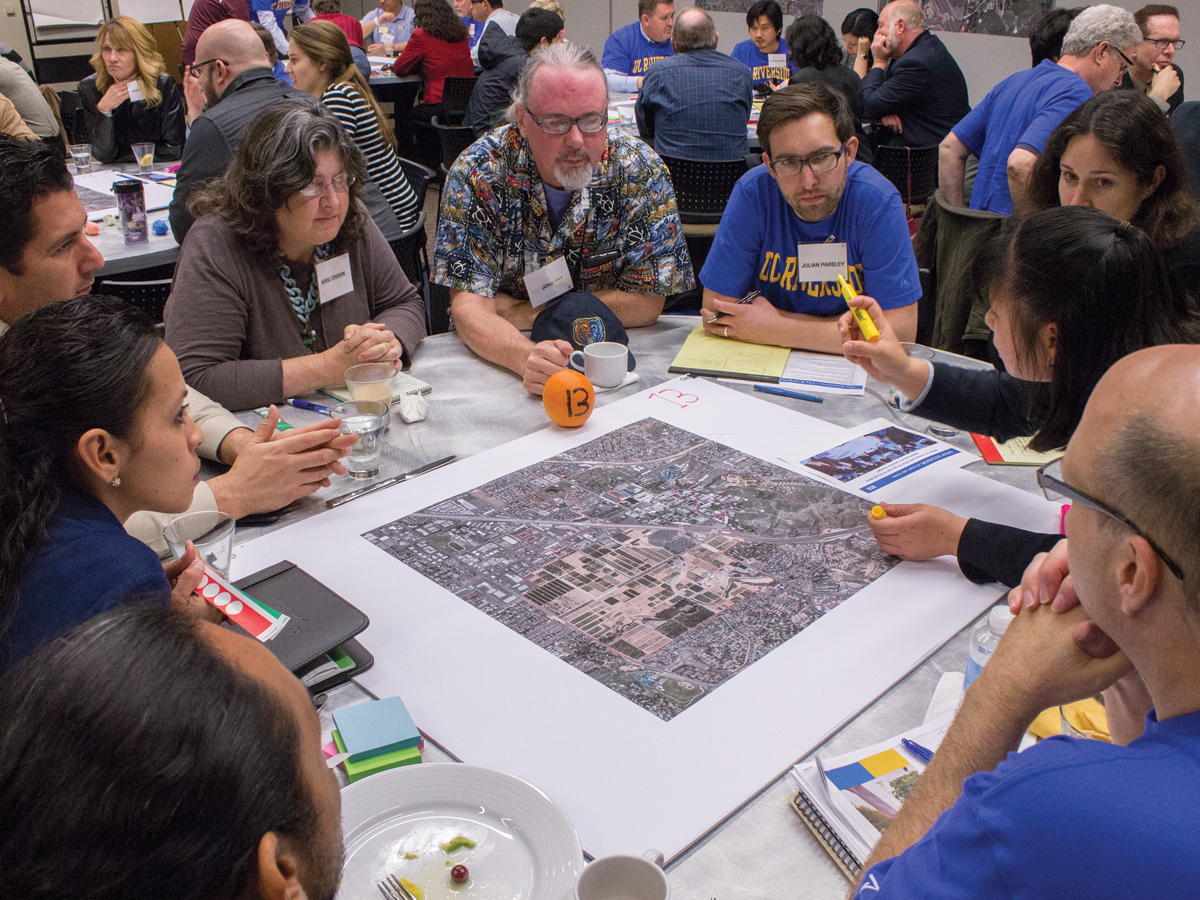
UCR held two planning workshops to seek the input of the campus community in determining the future of physical space on campus last Tuesday, Feb. 24. The first workshop, held in the HUB, was designed for students, staff and faculty while the second was intended for community members and held in the University Extension Center.
The workshops are part of a yearlong physical master plan study to identify the preferences of the campus community and explore the possibilities available for campus growth and expansion. Common themes expressed in both workshops included the need for a larger landmark to identify the entrances to campus, renovating older buildings or constructing new ones near the Bell Tower and increasing access to parking. Meanwhile, many attendees expressed dissatisfaction with Lot 30, the University Village and the intersections near the Arts and Materials, Science and Engineering Buildings.
Communications liaison for the project management team leading the study Barbara Lloyd emphasized that the purpose of the workshops so far is not to determine where growth should occur, but rather to determine how much growth is feasible. “Given what we’ve learned about what are the aspirations of the various stakeholders on campus and what the capacity of the existing campus is … what is the potential growth capacity, without deciding where it goes exactly, but what is that capacity?” Lloyd explained.
According to information presented at the workshops, UCR anticipates a 19 percent increase in enrolled undergraduates from 21,000 today to 25,000 by 2020, which would further increase to 30,000 by 2025. In addition, the campus hopes to hire 300 new faculty, representing an increase of 50 percent, and receive an additional $200 million in federal contracts and grants in the same time frame.
With such significant growth expected in the near future, UCR put out a request for proposal for independent contractors to lead the study. Between 15 to 18 firms applied, with planning firm Moore Ruble Yudell receiving the winning bid to conduct the study. The planning firm is expected to be paid nearly $1.1 million for its work on the study; the cost of the study overall is expected to be higher. Moore Ruble Yudell is also working with additional outside contractors for the project, which is expected to be completed in fall quarter 2015.
Buzz Yudell, partner at Moore Ruble Yudell, was present at the first workshop and described the workshop process as the “understanding stage.” “We get a diversity of opinions and ideas … We get a window, a snapshot, an understanding,” Yudell said, explaining that the workshops are complemented by analysis and research by architectural and development experts that occur later in the process.
The master plan study is an outgrowth of the campus’ strategic 2020 development goals, which were developed in 2010 by former chancellor Timothy White. The final product will eventually be integrated into a new long-term development plan, which will give more specifics on how the campus will change and grow over time. A steering committee, co-chaired by Executive Vice Chancellor Paul D’Anieri and Vice Chancellor for Planning and Budget Maria Anguiano, will be overseeing the development of the master plan study.
Fortino Morales, a 2011 UCR alumnus who is now the R’Garden coordinator, came to the workshop because he was interested in seeing how sustainability was being integrated into the planning process. Morales thought the workshops were successful, but noted that he would have liked more students to be present, suggesting that another venue may increase student turnout in future workshops.
“More is always better,” Lloyd said in response to a question about the student turnout. “We hope we will get that participation even higher… and we have been talking to student affairs about getting more student involvement,” highlighting visiting the dormitories and tabling by the Bell Tower as ways the committee has tried to reach out to students.
According to Lloyd, the first workshop was planned to be held in Bourns Hall, but after a more-than-expected 123 individuals RSVP’d, the workshop was moved to the HUB to accommodate the increased number of attendees. Of those, more than half were UCR staff, and UCR students made up just over a quarter; however, an unofficial Highlander tally numbered students as a much lower percentage of overall attendees. Over 40 people signed up for the second workshop.
A subsequent workshop will be held on April 27 to further develop and hone the ideas presented at the initial workshops. “We’re going to try to distill some guiding principles that should be common themes for the next phase of the work,” Lloyd said.








